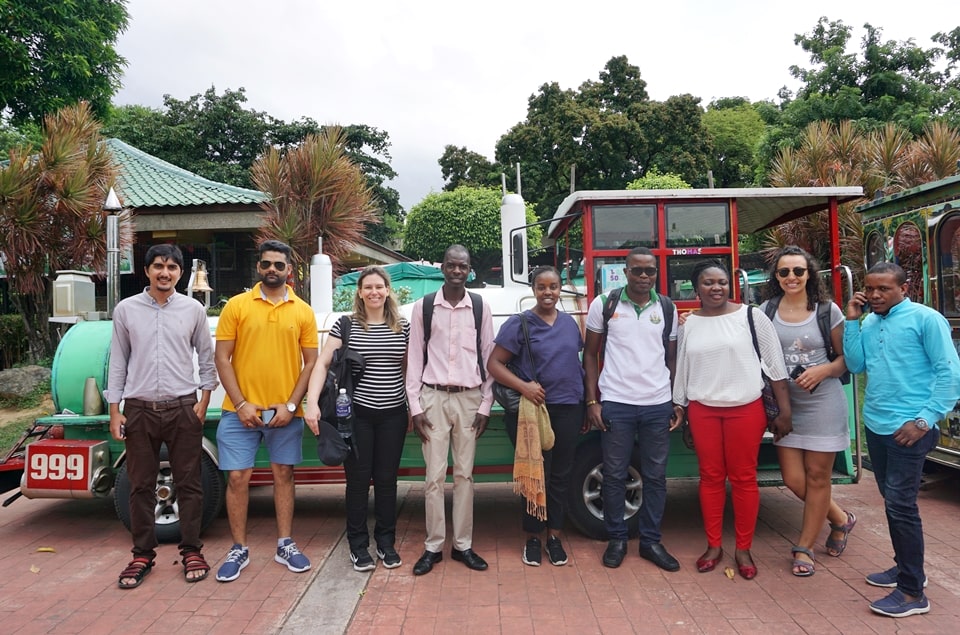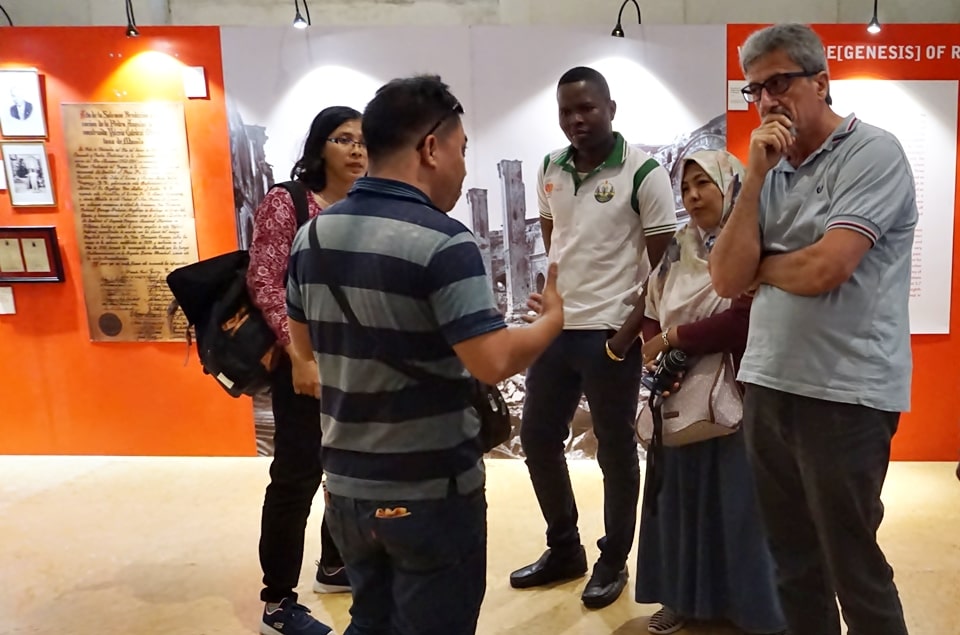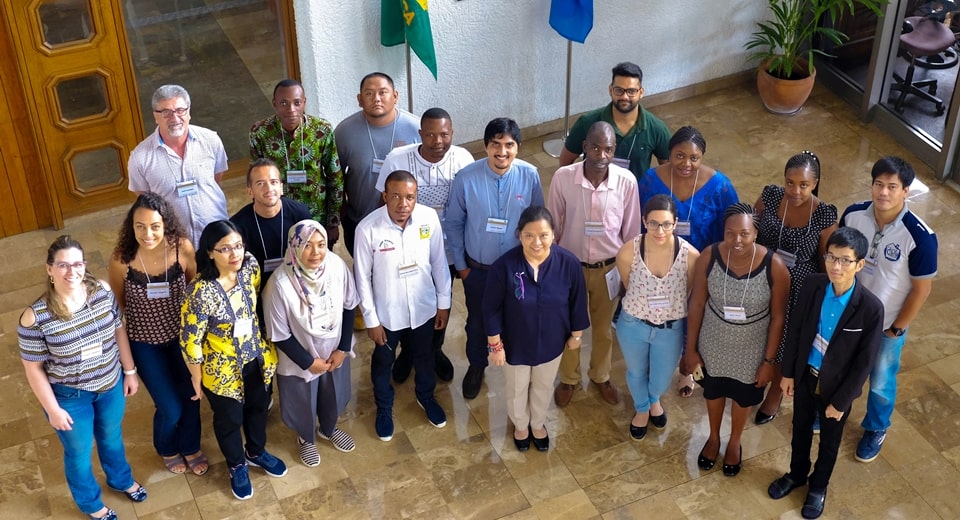 Participants of the FSC Summer School together with Dr. Maria Cristeta N. Cuaresma, Program Head of Graduate Education and Institutional Development Department (GEIDD), and Dr. José Paulo Molin, resource speaker for Module 1 – Precision Agriculture, from University of São Paulo, Brazil.
Participants of the FSC Summer School together with Dr. Maria Cristeta N. Cuaresma, Program Head of Graduate Education and Institutional Development Department (GEIDD), and Dr. José Paulo Molin, resource speaker for Module 1 – Precision Agriculture, from University of São Paulo, Brazil.
LOS BAÑOS, Laguna - The 2019 FSC Summer School, jointly organized by SEARCA and the Food Security Center (FSC) of the University of Hohenheim, Germany, opened on 9 September 2019 with Module 1 on Precision Agriculture having Dr. José Paulo Molin as resource person.
This year's summer school, with the theme "Transformative Changes in Agriculture and Food Systems," aims to explore advances in technology and the contribution of food and agriculture systems innovation to realize SDG 2: Zero Hunger. Nineteen graduate students from South and Southeast Asia, Africa, and Latin America from diverse academic background came to participate in this 3-week course.
Module 1 started with an introduction of precision agriculture, with Dr. Molin clarifying that "it is not a discipline, but a way of farming." The second day was devoted to a series of lectures on Sampling and Geostatistics followed by an afternoon outfield post tour at the International Rice Research Institute (IRRI), where scientist Jun Correa explained IRRI's precision farming machines and techniques. Dr. Molin followed this tour with a lecture on Sensors and Management Zones for Day 3.
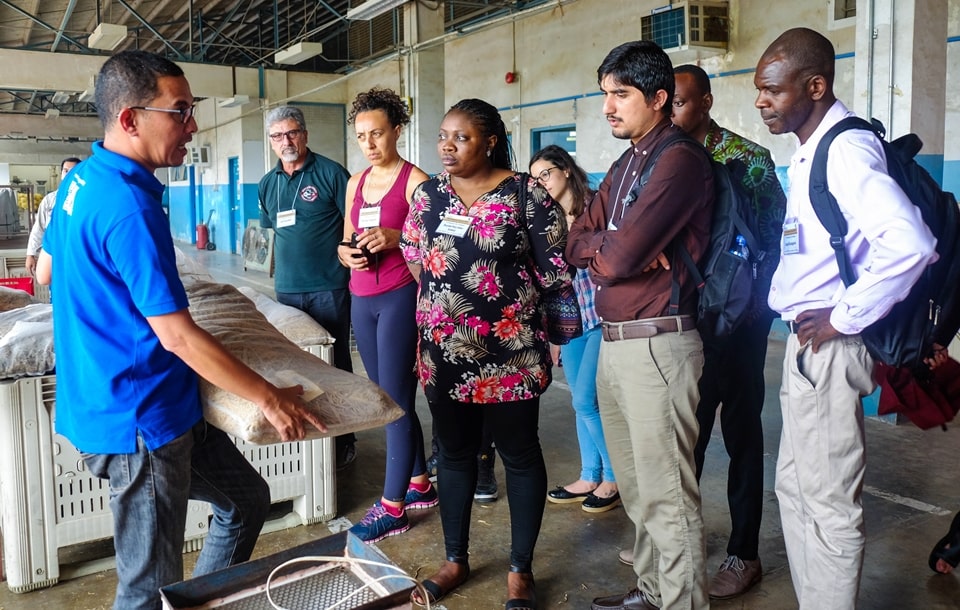 Scientist Jun Correa from the International Rice Research Institute (IRRI) demonstrating the precision farming machines and techniques
Scientist Jun Correa from the International Rice Research Institute (IRRI) demonstrating the precision farming machines and techniques
For the last two days of Module 1, each participant presented a research on precision agriculture that is related to their respective fields. Dr. Molin explained that the purpose of this activity was to encourage active participation in class, veer away from typical seminars, and provide an opportunity to learn actively from other researchers in the academe.
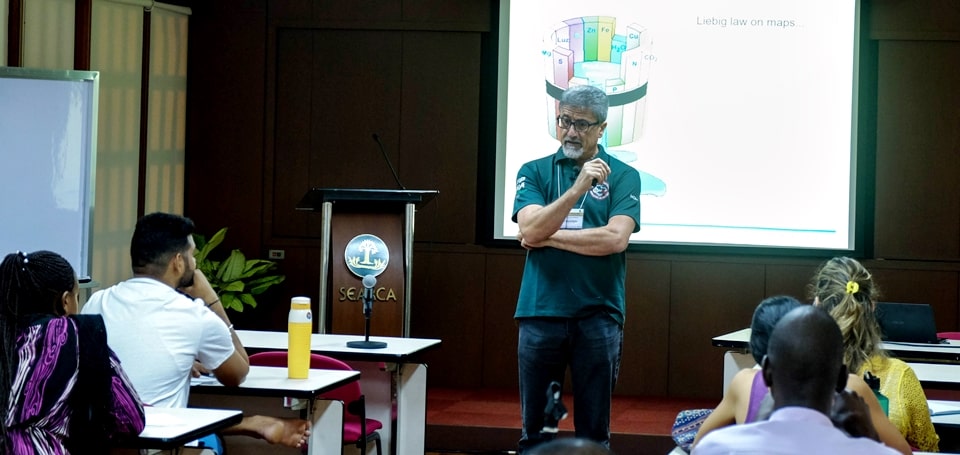 Dr. José Paulo Molin, resource speaker for Module 1, discussing the Liebig Law and Yield Maps for Precision Agriculture
Dr. José Paulo Molin, resource speaker for Module 1, discussing the Liebig Law and Yield Maps for Precision Agriculture
The first week of the FSC Summer School ended with a historical immersion trip where the participants learned about the rich culture of the Philippines.
Module 2 of the FSC Summer School on Vertical and Urban Farming, scheduled for 16-20 September 2019 is ongoing at the Central Luzon State University (CLSU) in Nueva Ecija. With Dr. Ireneo C. Agulto as resource person, the module will discuss vertical farming innovation systems as a means for sustainable food production.
The FSC Summer School is funded by the German Federal Ministry for Economic Cooperation and Development (BMZ) through the German Academic Exchange Service (DAAD) under the Higher Education Excellence in Development Cooperation (EXCEED) program.
